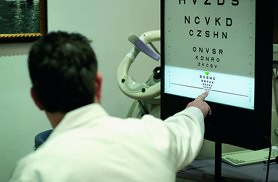
When you're visually impaired, getting around the Internet isn't always easy. Fortunately, the open source community takes accessibility very seriously.
If you or someone you know needs assistive computer software, here are four open source applications you'll want to check out.
Qwitter - Orignally designed as a Twitter client for the visually impaired, Qwitter has become a more fully-formed application that works across the internet with most screen readers, including the open source project NVDA for Windows.
Use it to search Bing, interact with Captcha-completer service Solona, manipulate your Google Voice account, and more.
Orca - This screen reader is bundled with the GNOME desktop (version 2.16 and newer), and ships with the Open Solaris, Ubuntu, and Fedora operating systems, but it is also available for separate download.
It supports the OpenOffice word processing suite and Firefox browser, and the Java platform, making Orca one of the most versatile open source screen readers available.
It also works with an ever-growing assortment of stand-alone apps.
WebAnywhere - Unlike screen readers that must be installed on a PC in order to work correctly, this Web-based tool requires no installation.
WebAnywhere works on any computer with a sound card, so visually impaired people can use publicly accessible PCs (at the airport or library, for instance) or borrow a friend's laptop hassle-free.
The vOICe for Android - Designed specifically for Android phones, this app uses sonic augmented reality with a device's built-in camera to provide geo-spatial feedback to the user via sound.
Check the app's website for full details on how it works, or download it for free in the Android Market by searching "seeingwithsound."

No comments:
Post a Comment